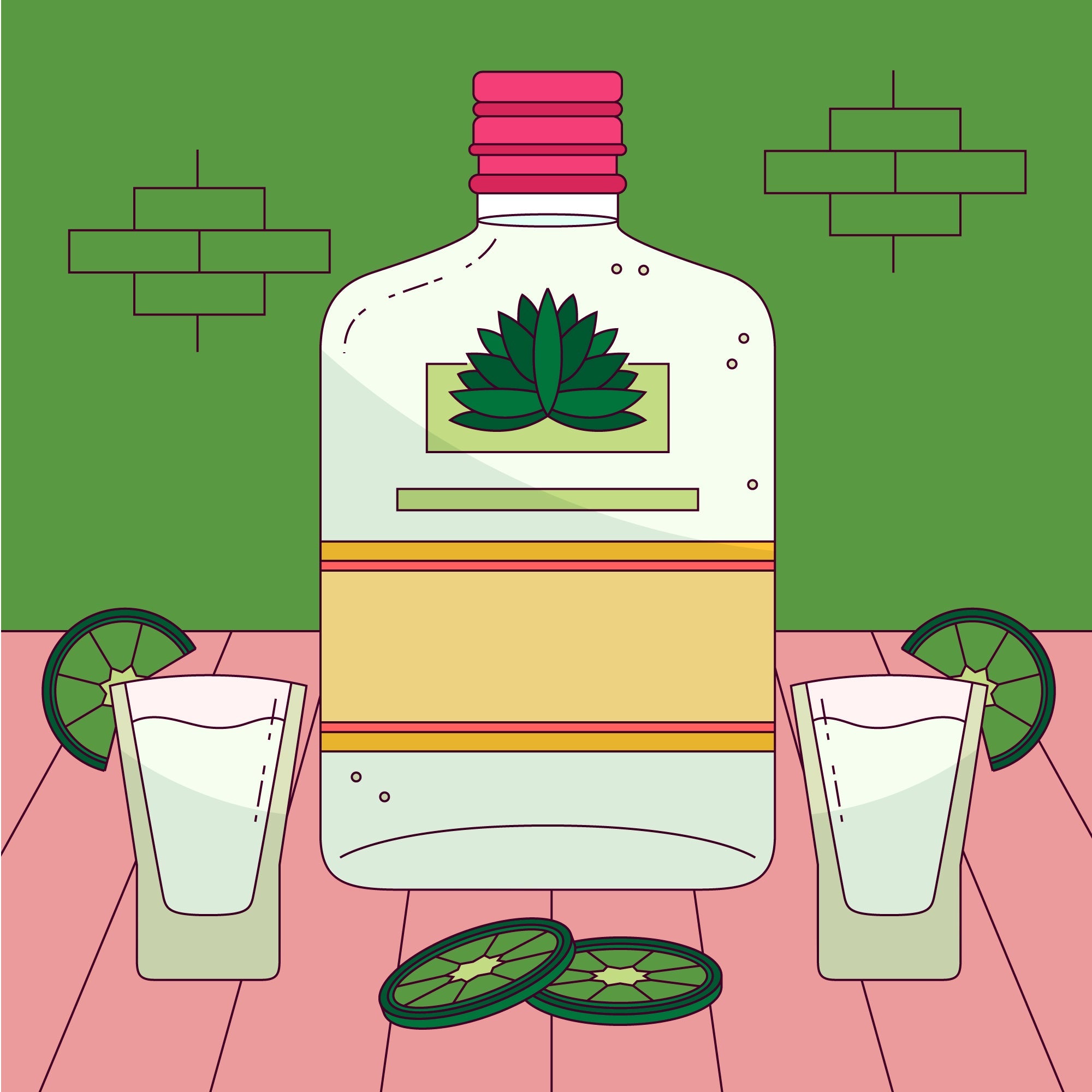
When it comes to choosing your drink, the debate between tequila and vodka often comes up — not just in terms of taste, but strength too. Whether you’re taking shots with friends, mixing up a cocktail, or sipping something smooth, you might ask: Is tequila stronger than vodka?
This is a common question, especially for casual drinkers or anyone interested in understanding what they're really consuming. While both tequila and vodka are distilled spirits with a similar alcohol content, there are subtle differences in strength, flavor, and how they affect you. In this article, we’ll explore the alcohol by volume (ABV), production methods, typical uses, and the myth vs. reality behind which is stronger — tequila or vodka.
Understanding Alcohol Strength: What Does “Stronger” Mean?
Before comparing tequila and vodka, it's important to define what “stronger” actually means. In the world of alcoholic beverages, strength is measured by Alcohol by Volume (ABV) — a percentage that indicates how much alcohol is in a drink.
-
Standard tequila typically has 38–40% ABV
-
Standard vodka also has 38–40% ABV
In terms of ABV, tequila and vodka are equally strong, at least by most global standards. However, strength can also refer to how the alcohol feels when consumed, how fast it hits, or even the psychological and physiological effects it has — and that’s where the comparison gets interesting.
Tequila: A Bold Spirit With a Unique Kick
What Is Tequila Made From?
Tequila is a distilled spirit made exclusively from the blue agave plant, primarily grown in the Jalisco region of Mexico. It has a distinct, earthy, and slightly sweet taste.
Types of Tequila:
-
Blanco (Silver) – Unaged or aged up to 2 months
-
Reposado – Aged 2 to 12 months
-
Añejo – Aged 1 to 3 years
-
Extra Añejo – Aged over 3 years
Because tequila comes from a natural plant source and undergoes specific aging processes (in some varieties), it often has a richer flavor and more intense finish than vodka.
Tequila Strength
Most tequilas are bottled at 40% ABV, but some premium brands or export versions may contain up to 50% ABV. The strong taste and heat from tequila often make it feel stronger even when the alcohol content is similar to vodka.
Vodka: The Versatile, Neutral Spirit
What Is Vodka Made From?
Vodka is typically made from grains such as wheat, corn, rye, or potatoes. The final product is distilled and filtered to remove impurities, resulting in a neutral flavor profile.
Types of Vodka:
-
Plain (Unflavored) – Most commonly used in cocktails
-
Flavored Vodka – Infused with fruits, herbs, or spices
-
Premium Vodka – Often triple-distilled for extra smoothness
Vodka Strength
Like tequila, standard vodka is bottled at 40% ABV in most countries. Some variations may go up to 50–95% ABV (like Everclear or Spirytus), but these are not for casual consumption and are usually used in industrial or cocktail settings.
Comparing Tequila and Vodka: Which Is Stronger?

In terms of actual alcohol content, they are generally equal. However, many people perceive tequila as stronger because of its bold flavor, sharper finish, and the cultural association with hard-partying shots.
Which Gets You Drunk Faster?
Assuming equal volume and ABV, neither tequila nor vodka will get you drunk faster — they are chemically equivalent in strength. What matters more is:
-
How much you drink
-
How quickly you drink
-
Your body weight and metabolism
-
Whether you’ve eaten recently
However, because vodka is smoother, some people may drink it faster without realizing how much alcohol they’re consuming — leading to quicker intoxication.
The Hangover Factor: Tequila vs. Vodka
Another myth is that tequila gives you a worse hangover than vodka. This mostly depends on:
-
The quality of the liquor: Cheap spirits contain more congeners (chemical by-products), which may worsen hangovers.
-
Mixers used: Sugary cocktails can intensify hangover symptoms.
-
How much you drink: Overconsumption is the real culprit.
High-quality 100% agave tequila is often easier on the body than cheap mixed tequilas (known as mixtos). Similarly, premium vodka, especially when distilled multiple times, contains fewer impurities and may lead to a milder hangover.
Cocktail Uses: Which One Wins?
Both spirits are cocktail staples, but they shine in different ways:
-
Tequila: Best for margaritas, palomas, and tequila sunrises.
-
Vodka: Preferred in martinis, Bloody Marys, Moscow mules, and cosmopolitans.
If you're looking for flavor and depth, tequila adds character. If you want a smooth base that lets mixers shine, vodka is ideal.
Conclusion: Is Tequila Stronger Than Vodka?
In terms of alcohol content, tequila and vodka are equally strong. Both spirits typically contain 38–40% ABV. However, tequila's bolder flavor and sharper finish can make it feel stronger on the palate, while vodka’s neutral taste may go down more easily — leading some to overconsume it without realizing.
The real “strength” of a drink depends not only on ABV but on your drinking habits, brand quality, and how your body processes alcohol. So whether you prefer the earthy tones of tequila or the smooth neutrality of vodka, the key is to drink responsibly and in moderation.
